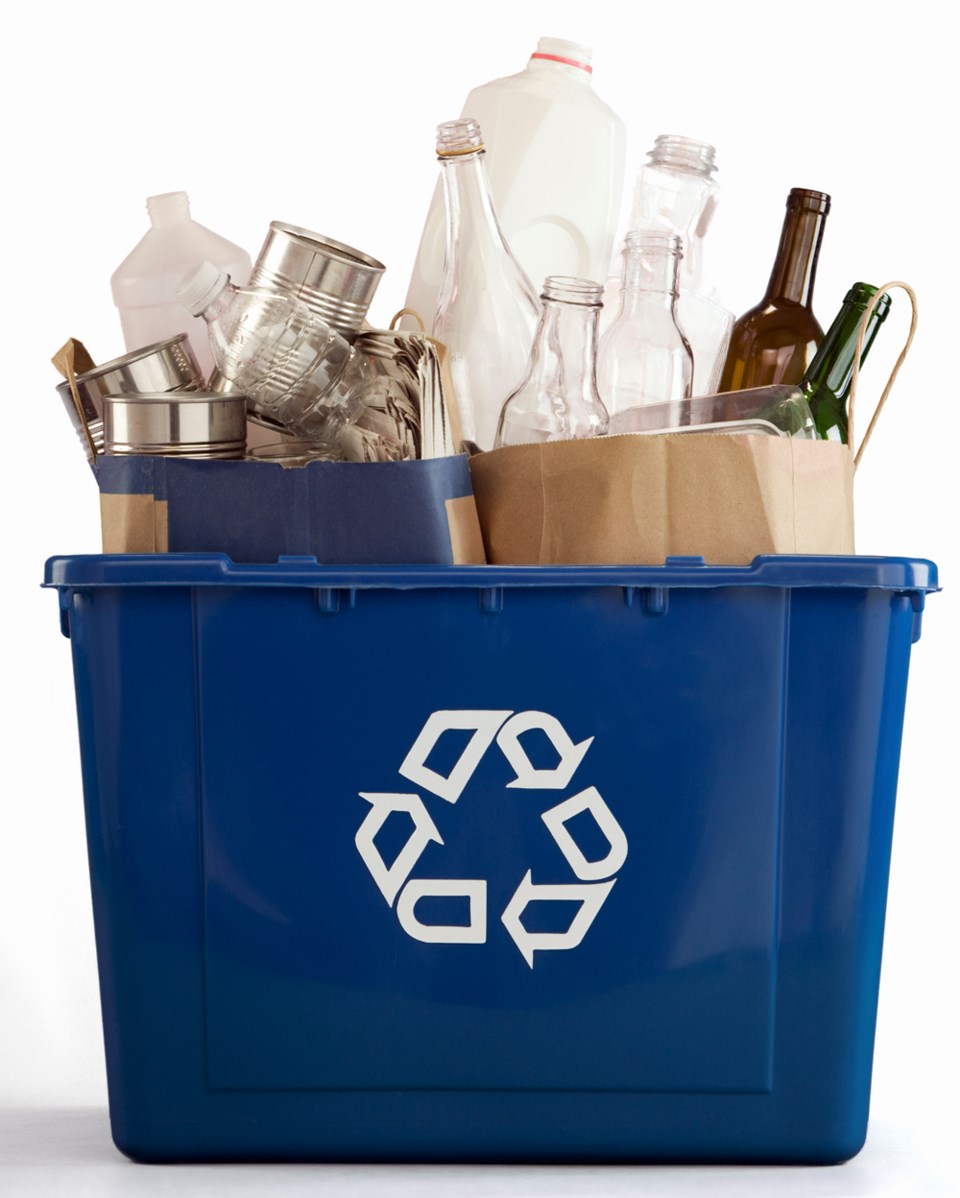More than half of people’s garbage is contaminated with recyclable or compostable waste, according to a 2016 audit.
The City of Burnaby studied 100 single- and two-family households from each collection zone over two weeks last summer. The study showed garbage had a contamination rate of 52 per cent, consisting of yard material and food scraps (40 per cent) and recyclable materials (12 per cent).
“We’ve had the food scraps program in place since 2010, so doing an audit and seeing that 60 per cent of the residents aren’t setting out their food waste is pretty significant,” says Tracey Tobin, an environmental services officer with the city.
The audit, included in the 2016 solid waste and recycling annual report released last week, showed 85 per cent of households put out their garbage bins, 73 per cent put out their blue boxes (mixed containers) and 41 per cent put out their green bins (yard materials and food scraps).
To reduce contamination, the city moved to bi-weekly garbage collection in April, with recyclables and compostable waste still picked up weekly.
While it’s too early to know how every-other-week pickup has impacted the diversion rate – the amount of waste diverted from the landfill – Tobin tells the NOW there’s been an upward trend over the last couple of years.
She says the 2015 diversion rate for green waste and recyclables was around 50 per cent, while the diversion rate last year was 53.3 per cent. The goal is to reach 80 per cent by 2020.
“We’re well on our way to get to 80 per cent diversion for the city,” says Tobin. “We want people to keep doing what they’re doing. We’d really like them to take a deeper look at some of the materials that they might not be recycling – so some of the things you could drop off at our eco-centre, or items that you could drop off at any of the provincial depots.”
The city will do another audit on the same 100 households in the next few months to see what this year’s trend looks like.
Failing to separate waste means the city, and ultimately taxpayers, could face fines from Metro Vancouver, the organization responsible for disposing of the region’s waste, according to Tobin.
“When we haul the garbage to a Metro Vancouver facility, Metro Vancouver has their own inspectors on site, so what could happen is our trucks could be flagged to be inspected, meaning they will ask us to empty our loads,” she explains. “Their inspectors will review our loads, and if we breech the threshold that they allow for materials in our garbage stream, then the city automatically receives a violation.”
For example, a truck load of garbage can’t contain more than five per cent of organic material. Otherwise, it’s a 50 per cent surcharge of what the total load costs.
Residents, meanwhile, could face a $250 fine if they receive one too many violation notices for not properly disposing their waste, recyclables and compost.
Unsure when collection day is? The City of Burnaby has an app that provides reminders and allows users to locate drop off depots. There’s also a feature that allows for the reporting of missed collection, graffiti, street light outages and more.
To download the app, visit my-waste.mobi/Burnaby/.



